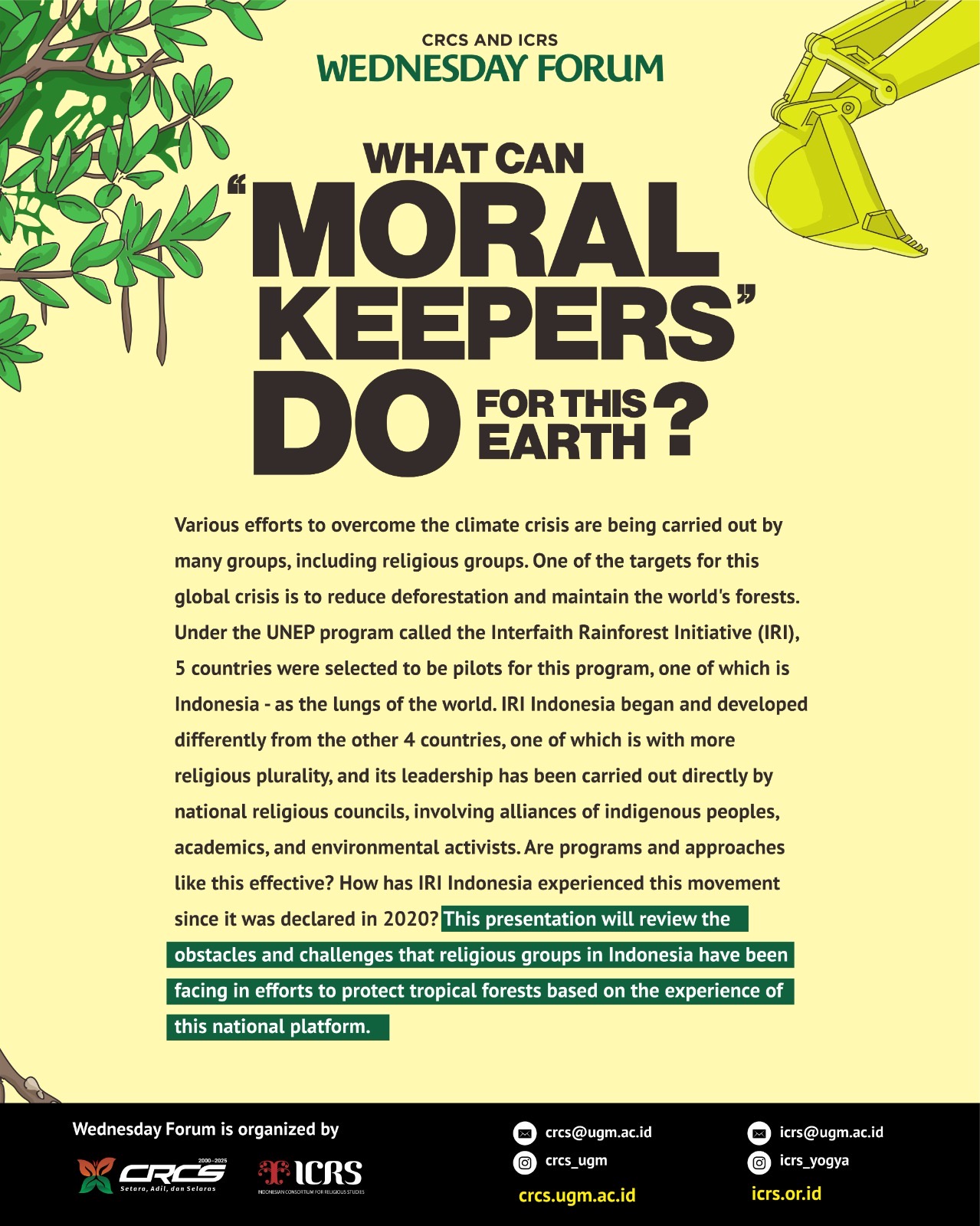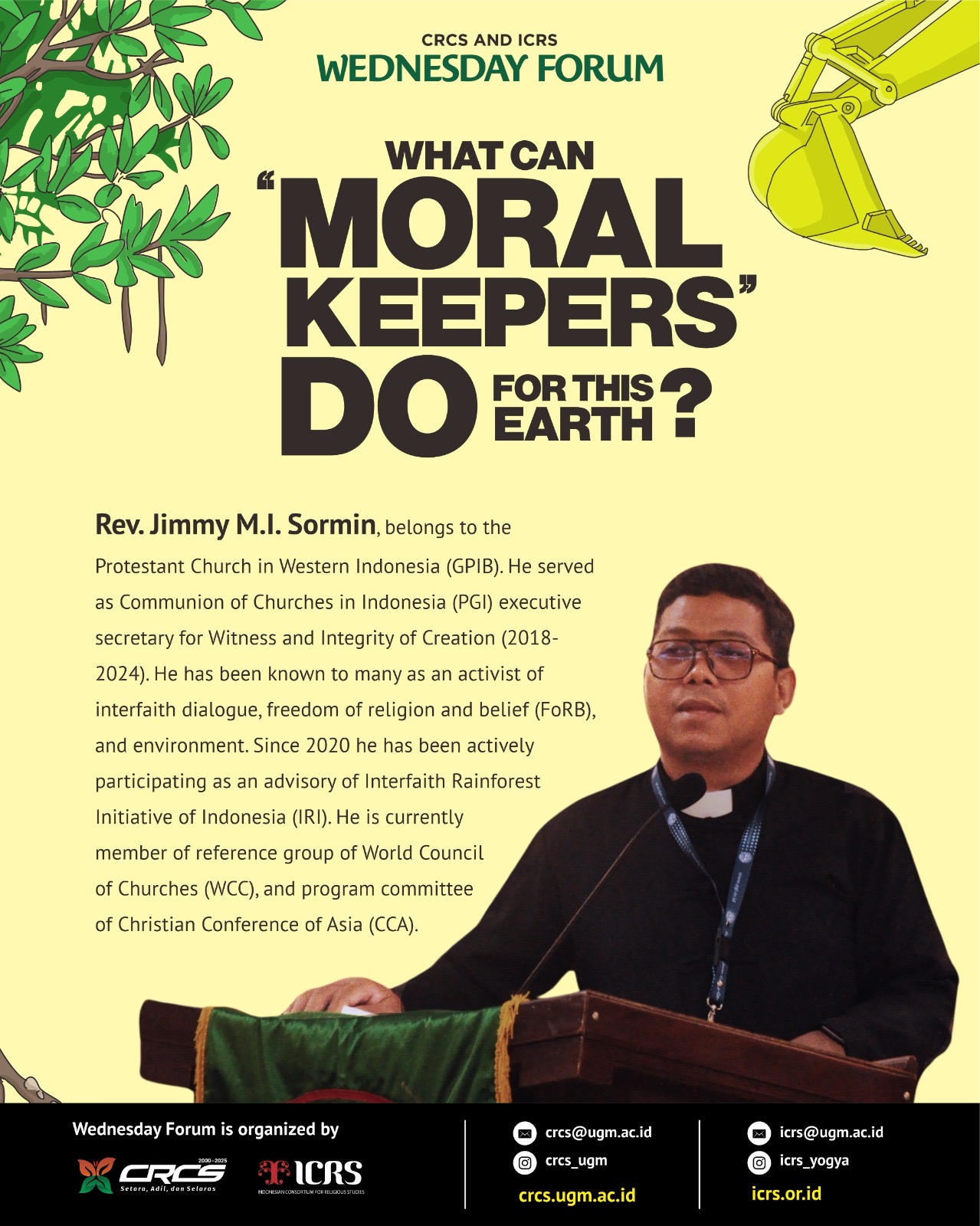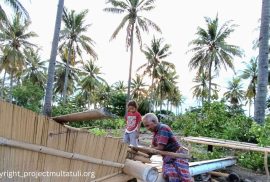April
Rezza Prasetyo Setiawan
Decolonization is a collective effort that seeks to span many sectors, including the domain of law. On January 2, 2023, Indonesia legalized a new penal code (Undang-Undang nomor 1 Tahun 2023 tentang Kitab Undang-Undang Hukum Pidana) which will come into effect on January 2, 2026. The new penal code (hereinafter referred to as KUHP 2023) will replace Wetboek van Strafrecht (WvS), a Dutch-constructed penal code which has long been the foundation for Indonesian criminal law.
Indonesian politics of religion and the related issues of religious freedom in Indonesia are tightly linked to the old penal code. The controversial Article 156a on religious blasphemy is often used as a tool to criminalize religious minorities. Currently, the seventh chapter of KUHP 2023, which includes Articles 300 to 305, specifically regulates matters related to religion or belief. Thus, changes brought by this recodification of the penal code garnered attention on how it would impact Indonesian politics of religion, specifically in matters of religious freedom.
Hendrikus Paulus Kaunang
Indonesia is currently facing a range of challenges that threaten its social and economic stability. Since the end of 2024, numerous events have pushed societal life to one of its lowest points in recent years. From a national leadership crisis, constitutional and legal manipulation, the weakening of the Rupiah, rising unemployment due to mass layoffs, to escalating political and social tensions, all have led the nation down a dark path, filled with uncertainty about a better future. The dream of Indonesia Emas (Golden Indonesia) 2045 seems more like a utopia when viewed against today’s circumstances. The terms Indonesia Gelap (Dark Indonesia) and Indonesia Cemas (Anxious Indonesia) are not mere expressions of pessimism, but rather a stark reflection of the crumbling foundations of national life, brought about by the capability of those in power who, ironically, emerged from a democratic process that is increasingly losing its meaning and integrity.
Written By: Anthon Jason
The agrarian conflict in Sikka Regency, Flores, involving PT Kristus Raja Maumere (Krisrama)—a corporation owned by the Catholic Diocese of Maumere—has emerged as a pivotal case for analyzing the interplay of religion, power, and land rights in postcolonial Indonesia. This conflict, which has garnered national attention since January 2025, represents a complex intersection of colonial legacies, religious authority, indigenous rights, and economic development. While the Catholic Church has historically positioned itself as an advocate for social justice, its role as a landowner and economic actor in Flores exposes contradictions between spiritual mission and neoliberal praxis.
Written By: Anthon Jason
Have you ever wondered how a blind person dreams? How does a blind person know whether he is awake or asleep? The reflective questions that emerged in the presentation of Wednesday Forum 12 March 2025 with Dr. Budi Irawanto tickled and made us realize how little we know about disability. The care and attention given are also often causing new problems because of the lack of willingness and ability to understand disability. Through the 2011 Indonesian film Hafalan Shalat Delisa (Delisa’s Prayer Memorization), directed by Sony Gaokasak and based on a novel by Tere Liye, Dr. Budi provides a critical analysis through the perspective of religious studies and communication science. The movie tells the story of a young girl’s resilience after losing her leg in the 2004 Aceh tsunami. Although it received praise for being able to attract audience sympathy and convey Islamic messages while also raising the theme of disability, there are some critical notes conveyed by Dr. Budi Irawan, who is an associate professor in the Department of Communication Science at the Faculty of Social and Political Sciences, Universitas Gadjah Mada.







